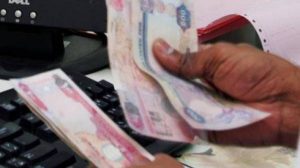Saturday, June 16, 2018
Gulf News – What UAE’s interest rate hike means for consumers
تم إعداد هذا المنشور من قبل فيجاي فاليتشا

Analysts explain how latest round of interest rate hike in UAE could affect consumers saddled with debt
Dubai: Some UAE consumers with outstanding loans tied to prime lending rates, including those with credit card balances and mortgages, could see their monthly installments rise with the latest round of increase to key interest rates, experts have said.
Those who have stashed some cash in the bank, however, might be able to enjoy higher interest rates, although interest rates on savings deposits are still at rock-bottom levels and don’t always budge whenever new rate adjustments take effect.
The UAE Central Bank has announced that starting Thursday, June 14, it is tacking on a 25-basis-point increase in its benchmark interest rates, following a similar hike implemented by the US Federal Reserve.
The move was expected since the UAE’s currency is pegged to the American dollar. It’s the second increase implemented this year and the Federal Reserve has said it is likely that two more adjustments would follow before the end of 2018.
The adjustment, which effectively raises the UAE’s key rates to 2.25 per cent, applies to the issuance of certificates of deposits and repo rate applicable to borrowing short-term liquidity from the central bank against certificates of deposits.
“[With the increase,] there is a possibility that consumers would have to pay more on loans,” said Promoth Manghat, CEO of UAE Exchange Group.
“Since the banks will now have to shell out additional sums in terms of higher interest rates, there is a high possibility that the interest on loans such as personal, housing, auto, will rise as banks will try to counter the downward pressure on net interest margins,” M.R. Raghu, executive vice president for Kuwait Financial Centre “Markaz,” told Gulf News.
Personal loans, car loans and credit debts are a part of life for many people in the UAE. The average person in the country owes more than Dh42,000, according to estimates.
But consumers shouldn’t get too wrapped up in the idea that everything will become expensive with the new rate hike. According to analysts, the increase is an indication that the economy is on a positive path and is set to reap more benefits.
According to a recent analysis, there has been a decline in deposits and loans in UAE this year. Gross credit dropped by 0.1 per cent in April this year compared to the previous month, while deposits fell by 0.1 per cent during the same period.
Source: Gulf News.
__511674160.jpg)
__1302024813.jpg)
__1878767494.jpg)
__1738963817.jpg)
__1225849453.jpg)











